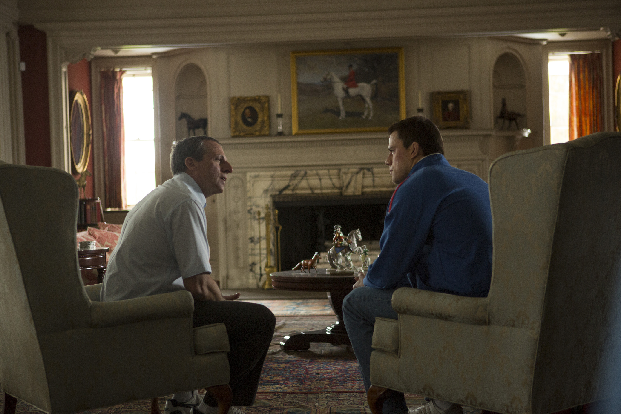 Where there is comparison, there is competition. Where there is competition, therein lies a mentality of winning versus losing. Look no further than sports, where we see it front and center, as fist pumps and victorious chants are always juxtaposed with hung heads and tears. Imagine the amount of effort and time that these professional athletes invest in themselves leading up to that key moment. What does winning and losing mean to them? This mentality is subtly and tremendously personified in Foxcatcher, an engrossing and sad picture that stands as one of the year’s best films.
Where there is comparison, there is competition. Where there is competition, therein lies a mentality of winning versus losing. Look no further than sports, where we see it front and center, as fist pumps and victorious chants are always juxtaposed with hung heads and tears. Imagine the amount of effort and time that these professional athletes invest in themselves leading up to that key moment. What does winning and losing mean to them? This mentality is subtly and tremendously personified in Foxcatcher, an engrossing and sad picture that stands as one of the year’s best films.
Author Archives: Jun I
REVIEW: Interstellar
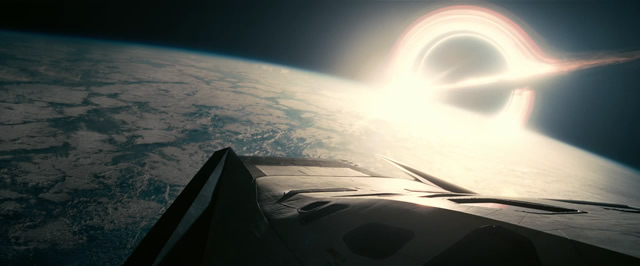 On a surface level, Interstellar arrives at a right time. It’s not just a time when moviegoers cry out for something truly grand and original amidst all the adaptations; it’s also a time when we need an extra push to explore beyond the skies above, a dream for many that is undercut by increasing cuts to NASA or recent incidents like the Antares rocket or the Virgin Galactic rocket plane. It’s a time when we need to see inspiration and vision more than ever.
On a surface level, Interstellar arrives at a right time. It’s not just a time when moviegoers cry out for something truly grand and original amidst all the adaptations; it’s also a time when we need an extra push to explore beyond the skies above, a dream for many that is undercut by increasing cuts to NASA or recent incidents like the Antares rocket or the Virgin Galactic rocket plane. It’s a time when we need to see inspiration and vision more than ever.
Now, put Christopher Nolan’s name into this equation, and what’s promised is a mouthwatering potential, a marriage between exhilarating blockbuster and intellectual stimulant. Cinema at its best, challenging and moving us! But alas, as previously mentioned, this is just at surface level. Probe deeper, and the reality is a visually stunning yet frustrating picture, one that never bores yet fails to find its place amongst the stars.
REVIEW: Whiplash
 Music is universally enjoyed, regardless of location, culture, religion, or race. That’s not to say that each genre and style is everyone’s cup of tea, but anyone typically has an affection for particular beats and tunes. For those who make music their living, the theory is that they too should enjoy it. But what happens when enjoyment takes a backseat to something that’s not? Last year’s Inside Llewyn Davis presented a somber portrayal of a musician who’s more concerned with surviving than enjoying his craft, and this year’s Whiplash does something similar, except perfection and the desire to be one of the greatest takes precedence over enjoyment.
Music is universally enjoyed, regardless of location, culture, religion, or race. That’s not to say that each genre and style is everyone’s cup of tea, but anyone typically has an affection for particular beats and tunes. For those who make music their living, the theory is that they too should enjoy it. But what happens when enjoyment takes a backseat to something that’s not? Last year’s Inside Llewyn Davis presented a somber portrayal of a musician who’s more concerned with surviving than enjoying his craft, and this year’s Whiplash does something similar, except perfection and the desire to be one of the greatest takes precedence over enjoyment.
REVIEW: Fury
 No other major event or era has as many films set during its period of time than World War II. Whether they be the heroic, victorious tales that were common from the ’40s until the ’70s or the gritty, morality-focused stories of survival from the ’80s and on, there will always be an audience for American films about WWII, and thus they will never cease to be made. Lately, though, there has been a noticeable lack of large-scale, brash and loud films that showcase how the battlefield shapes soldiers’ personalities and psychologies. Saving Private Ryan is the most noteworthy of these, and Letters from Iwo Jima is arguably the most recent.
No other major event or era has as many films set during its period of time than World War II. Whether they be the heroic, victorious tales that were common from the ’40s until the ’70s or the gritty, morality-focused stories of survival from the ’80s and on, there will always be an audience for American films about WWII, and thus they will never cease to be made. Lately, though, there has been a noticeable lack of large-scale, brash and loud films that showcase how the battlefield shapes soldiers’ personalities and psychologies. Saving Private Ryan is the most noteworthy of these, and Letters from Iwo Jima is arguably the most recent.
In steps Fury, a tank film directed by David Ayer, known for his work on crime films like Training Day and End of Watch. Given that those films were known for their sharp and visceral portrayals of Los Angeles street crime by closely following their characters, to see how those techniques would shape the storytelling aspect of a war film taking place inside a tank was the film’s biggest draw for me. While Ayer has certainly crafted an intense and violent film that constantly reinforces the message of “war is hell,” it never goes beyond that and as a result feels frustratingly constrained.
REVIEW: Gone Girl
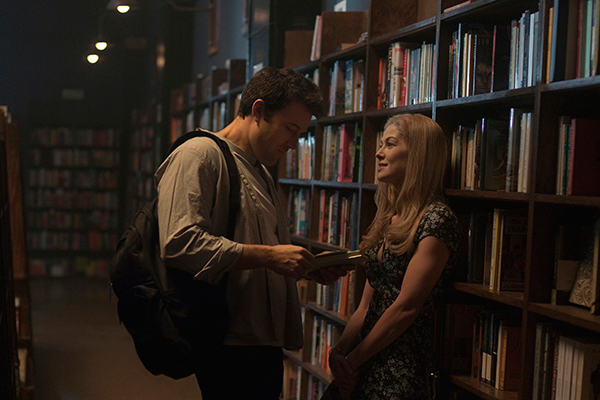 What better way is there to kick-start fall and this year’s awards season than a David Fincher date movie? If you ask me, I can’t think of any, but you’re talking to a cinephile who’s single. Anyways…
What better way is there to kick-start fall and this year’s awards season than a David Fincher date movie? If you ask me, I can’t think of any, but you’re talking to a cinephile who’s single. Anyways…
After hearing good buzz about Gillian Flynn’s thriller novel and out of anticipation for the film adaptation’s release, I read Gone Girl a few months ago and found it to be an cynical and entertaining page-turner about a marriage gone wrong. Sounds like a good match for Fincher, known for tackling cold, dark material in his work on Seven and Netflix’s House of Cards. With him at the helm, Gone Girl turns out to be a sleek, engaging film that never loses its suspense and comes with a healthy dose of nihilism.
REVIEW: The Equalizer
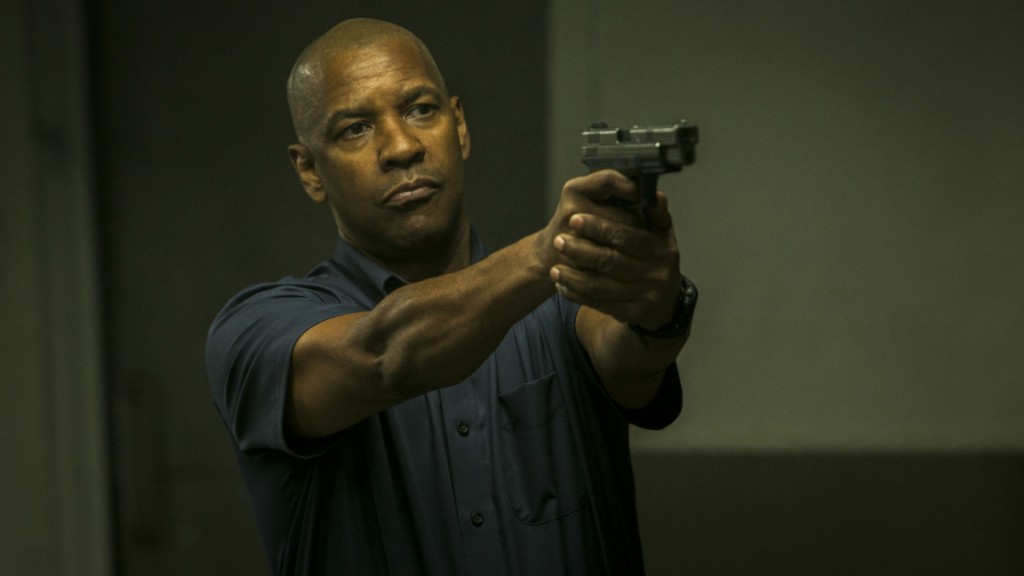 Watching The Equalizer brought back memories of other, older films that influenced it – movies like Dirty Harry and Death Wish, where characters played by Clint Eastwood and Charles Bronson became iconic images of the gritty, vengeance-seeking antihero. That’s not to say that Antoine Fuqua’s latest flick should be held in the same regard as those two, but there’s no denying that it delivers what it promises – unflinching, gratifying violence conducted by an cool-headed, justice-seeking vigilante who’s willing to kill.
Watching The Equalizer brought back memories of other, older films that influenced it – movies like Dirty Harry and Death Wish, where characters played by Clint Eastwood and Charles Bronson became iconic images of the gritty, vengeance-seeking antihero. That’s not to say that Antoine Fuqua’s latest flick should be held in the same regard as those two, but there’s no denying that it delivers what it promises – unflinching, gratifying violence conducted by an cool-headed, justice-seeking vigilante who’s willing to kill.
REVIEW: Guardians of the Galaxy
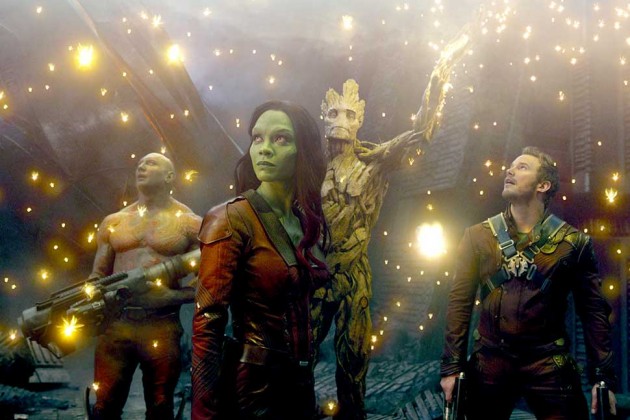 I still remember the fans’ reactions when Marvel Studios announced that Guardians of the Galaxy would be part of the lineup for Phase Two of the MCU (Marvel Cinematic Universe). The film that would come out on August 1, 2014 was not a standalone Hulk film, nor was it a Black Panther film that many were hoping for. Instead, it was to be a film that featured a humanoid tree and a talking raccoon. What the hell? Do these superheroes even exist? Turns out, they do – they just became the Guardians of the Galaxy team fairly recently, in 2008.
I still remember the fans’ reactions when Marvel Studios announced that Guardians of the Galaxy would be part of the lineup for Phase Two of the MCU (Marvel Cinematic Universe). The film that would come out on August 1, 2014 was not a standalone Hulk film, nor was it a Black Panther film that many were hoping for. Instead, it was to be a film that featured a humanoid tree and a talking raccoon. What the hell? Do these superheroes even exist? Turns out, they do – they just became the Guardians of the Galaxy team fairly recently, in 2008.
Still, that didn’t placate the belief that Guardians of the Galaxy was Marvel’s riskiest film. These were hardly characters that people recognized by name alone, and how would this film fit into the MCU? As it turns out, this kinetic film is not only the one film in Phase Two that stands well on its own, it’s also a film that can stand out from the MCU entirely. What’s more, director James Gunn has turned a film with supposedly risky material into a fun, absorbing film that makes a world come alive for moviegoers to enjoy.
REVIEW: Boyhood
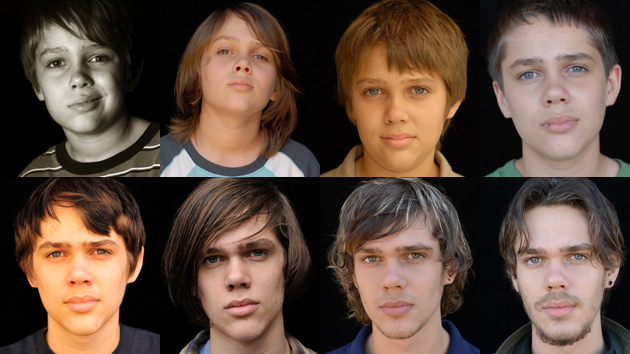 When you really think about it, your life isn’t so much a story with a plot as much as it is a work in progress. It only becomes a story after time passes, after death. When you find yourself in the moment, life is not “set.” There’s only the “now.” Ultimately, we are not in control of our own narrative. Perhaps that’s why we appreciate the storytelling technique, whether it be for books, movies, or television; as storytellers, we are in control of every aspect of our work: story, direction, characters, dialogue, setting – you name it. The same can’t be said for our lives.
When you really think about it, your life isn’t so much a story with a plot as much as it is a work in progress. It only becomes a story after time passes, after death. When you find yourself in the moment, life is not “set.” There’s only the “now.” Ultimately, we are not in control of our own narrative. Perhaps that’s why we appreciate the storytelling technique, whether it be for books, movies, or television; as storytellers, we are in control of every aspect of our work: story, direction, characters, dialogue, setting – you name it. The same can’t be said for our lives.
When people talk about why they watch movies, the words “escape from reality” often pop up. That being said, why watch films about life, about reality, when we want to escape from it? I can’t speak for everyone, but I think it’s because those films remind us of ourselves, the human condition. That is what we all share in common, is it not? Capturing the very essence of life is a task that few films take up, a task that very few of those accomplish, and Boyhood is one of them.
REVIEW: Snowpiercer
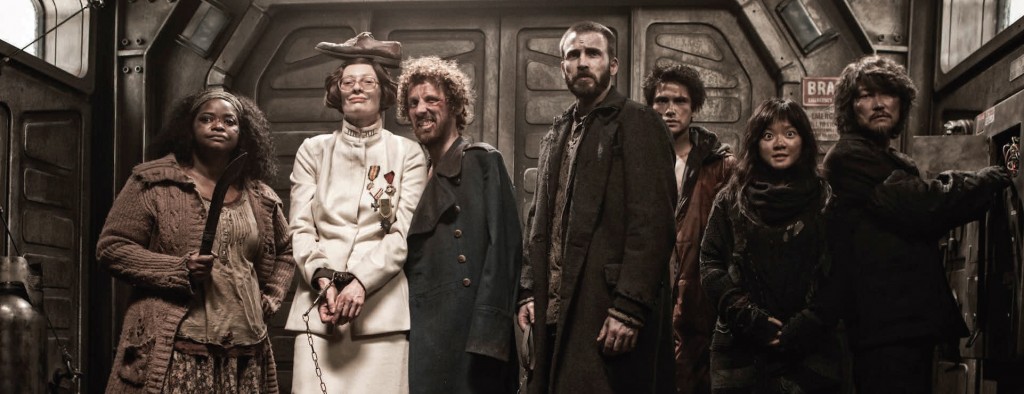 In recent years, I’ve become increasingly interested in foreign auteurs making films either in Hollywood or with Hollywood stars (or, of course, a combination of the two). This certainly isn’t new, as we can always look to directors like Paul Verhoeven (Starship Troopers, Basic Instinct*) and Alfonso Cuarón (Harry Potter and the Prisoner of Azkaban, Gravity), whose careers really took off after making forays into Hollywood-esque productions. Unfortunately, we can’t say the same for Asian auteurs; the one who was arguably the most successful was John Woo, but even a great film like Face/Off* was followed by a hollow Mission: Impossible II*.
In recent years, I’ve become increasingly interested in foreign auteurs making films either in Hollywood or with Hollywood stars (or, of course, a combination of the two). This certainly isn’t new, as we can always look to directors like Paul Verhoeven (Starship Troopers, Basic Instinct*) and Alfonso Cuarón (Harry Potter and the Prisoner of Azkaban, Gravity), whose careers really took off after making forays into Hollywood-esque productions. Unfortunately, we can’t say the same for Asian auteurs; the one who was arguably the most successful was John Woo, but even a great film like Face/Off* was followed by a hollow Mission: Impossible II*.
It’s the same case for Korean directors as well (full disclosure: I’m Korean). I’ve long been a fan of Park Chan-Wook (Oldboy*), but I didn’t find Stoker engaging. Ditto for Kim Jee-Woon (A Tale of Two Sisters), whose English-language feature The Last Stand* I found lacking for an Arnold Schwarzenegger-fronted action film. That being said, I was relieved when watching Snowpiercer, directed by Bong Joon-ho (Memories of Murder), which bucked this trend. Better yet, it may be the best film currently playing in theaters at the moment (I’ve yet to catch Dawn of the Planet of the Apes and Boyhood, both opening this weekend).
REVIEW: Godzilla (2014)
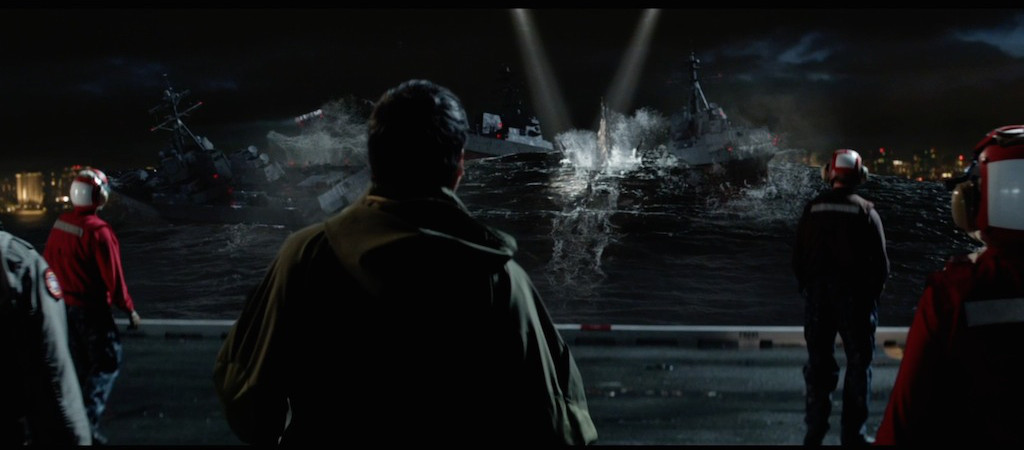 In the ’90s, Americans had a chance to produce a film featuring their own take on Godzilla, and the subsequent 1998 film was as well received as New Coke. Over 15 years of denial later, we now get to witness their second chance, also called Godzilla. But this time, the King of the Monsters would walk in glory – or at least he would, if the film itself truly did justice to Godzilla. Director Gareth Edwards has meticulously crafted a film with a grand sense of scale but without a worthy emotional foundation.
In the ’90s, Americans had a chance to produce a film featuring their own take on Godzilla, and the subsequent 1998 film was as well received as New Coke. Over 15 years of denial later, we now get to witness their second chance, also called Godzilla. But this time, the King of the Monsters would walk in glory – or at least he would, if the film itself truly did justice to Godzilla. Director Gareth Edwards has meticulously crafted a film with a grand sense of scale but without a worthy emotional foundation.
(warning: spoilers after the break)
